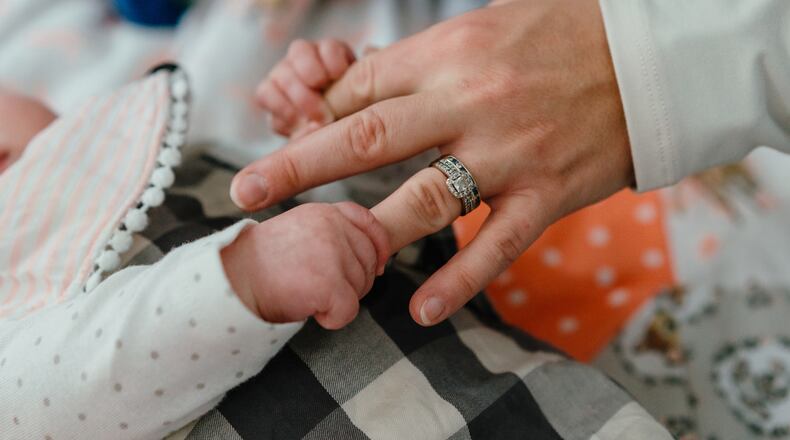RSV is the leading cause of hospitalization among infants in the U.S., the CDC says. Between 58,000 and 80,000 children under 5 years of age, mostly infants, are hospitalized each year nationwide due to an RSV. An estimated 100 to 300 children younger than 5 years old die due to RSV each year, according to the CDC.
Due to these risks, the CDC recommends infants get the nirsevimab shot in their first RSV season if the mother did not receive the maternal RSV vaccine during pregnancy.
Nirsevimab isn’t a vaccine, doctors say. A vaccine stimulates the body’s immune system to develop antibodies against a specific infection, but monoclonal antibodies, like in nirsevimab, provide passive immunity.
“Passive immunity is when antibodies to an infection are given to a person to help prevent or treat a disease,” Dr. Michael Klatte, chief of infectious disease at Dayton Children’s, previously said to the Dayton Daily News.
This passive immunity lasts for however long the antibodies remain in the body, which is about five months for a dose nirsevimab, Klatte said.
Dayton Children’s has followed the American Academy of Pediatrics, which recommends infants aged eight months or younger who were born during or entering their first RSV season whose pregnant parent did not receive RSVpreF vaccine get the shot.
Nirsevimab is not recommended for infants whose pregnant parent received RSVpreF vaccine at least 14 days before giving birth. Some infants between eight and 19 months age may also qualify for a shot if their health is compromised.
Nirsevimab is also preferred over palivizumab, the American Academy of Pediatrics says, because the immunity provided by nirsevimab lasts longer.
“We are optimistic that more widespread use in the coming years will result in decreased severity of illness and hospital rates associated with RSV infection in infants,” said Dr. Jon Woltmann, infectious disease provider at Dayton Children’s Hospital.
The most recent RSV season was a more typical of pre-COVID season compared to the season post-COVID, he said.
“Infants still required hospitalization for treatment on occasion, but rates of illness and hospitalization were not outrageous,” Woltmann said.
In addition to this, the season appeared to have returned to its usual winter based pattern.
About the Author

